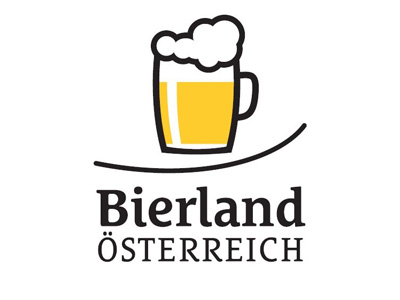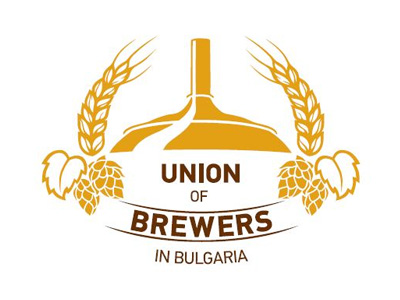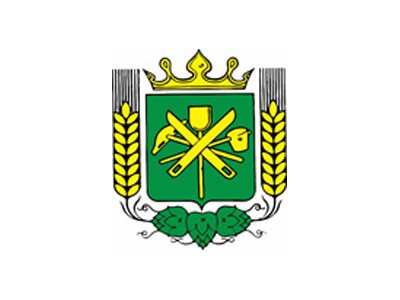
Exports boost Europe’s beer production to eight-year high
- 04/12/2018
- general
Beer Serves Europe launches latest sector report from The Brewers of Europe
BRUSSELS 4 December 2018. Europe’s beer production rose to an eight-year high in 2017 bolstered by record exports, a rise in micro-breweries and increased low-alcohol products.
According to The Brewers of Europe’s latest report on Europe’s beer sector, production increased by 2 million HL 39.6 billion litres and exports reached an all-time high. Now one in five beers is shipped abroad, a third of that to outside the EU.
With a production of 9.3 billion litres Germany was the top producer - one in every five beers produced in the EU originates from Germany, followed by the United Kingdom and Poland (both at 4 billion litres produced, each representing 10% of the total). German and Belgian breweries exported the most beer outside their countries, 1.5 billion litres each.
In addition, the EU now produces nearly 900 million litres of non-alcoholic* beer (2% of all beer) each year, according to the data collected by Eurostat for 2017, whilst production of lower alcohol beers is also growing. This, coupled with the rise in the number of microbrewers and SMEs over the past year, shows how consumer demand is evolving and how the sector is diversifying to meet it. Around 3 quarters of the 9,500 breweries are SMEs, with the United Kingdom alone now accounting for 2,430 breweries, many of which are smaller producers.
Speaking at the 8th annual Beer Serves Europe launch event today, Pierre-Olivier Bergeron, Secretary-General of The Brewers of Europe said “Beer forms an integral part of our culture and has been enjoyed in communities across Europe for several thousand years. The brewing sector is a fundamental element of the European economy, combining local traditions with innovation. The diversification of the sector benefits many areas of the economy: in competitiveness, trade, job creation and innovation.”
1: Europe’s buoyant beer sector
- EU beer production at an eight-year high of nearly 39.7 billion litres
- Germany, UK, Poland top producers in 2017
- Two-thirds of the beer produced in the EU came from seven Member States.
Germany, the United Kingdom and Poland were the top three producers. Other countries making a high volume of beer were Spain (3.8 billion litres, or 9%), The Netherlands (2.4 billion litres, or 6%), France (2.1 billion litres or 5%) and Belgium (approximately 2 billion litres or 5%).
Compared with 2016, Portugal (+8%) recorded the highest increase in the production of beer, followed by Italy (+7%), Slovakia and the United Kingdom (both +6%) and Cyprus (+5%).
- The number of active breweries increased by nearly 1,000 last year alone to almost 9,500 in the EU.
- There has been an increase of around 6,000 breweries in the last 10 years.
Of the 9,500 breweries, about three-quarters are microbrewers and SMEs, driving for ever greater diversity and choice now available for Europe’s beer consumers. With 2,430 breweries, the United Kingdom has the highest number of breweries in the EU, followed by Germany (1,492), France (1,100), Italy (868) and Spain (521).
2: Consumer demand is evolving
It is interesting to note that the increase in beer consumption over the last four years (though still a way off the levels prior to the global economic crisis in 2008) has coincided with a drop in overall alcohol consumption, binge drinking and adolescent drinking.
This demonstrates that a shift towards beer, a typically low alcohol beverage, coupled with the increased availability of even lower alcohol and non-alcoholic beers, is compatible with and maybe even contributing to the improved consumption patterns of Europe’s ever more health-conscious citizens.
Leading by example, Brewers are also committed to transparency so consumers can make informed choices about their beer. By the end of this year, two-thirds of Europe’s beer will be labelling ingredients and over half will be voluntarily labelling calories in the same way that other food and drink products already have to do. Our commitment to voluntarily provide understandable, recognisable, comparable and accurate consumer information is just one of the 100+ responsibility commitments made by Europe’s brewers under the Beer Pledge. This pledge is our 6-year strong commitment to support EU Member States reduce alcohol-related harm.
A 2018 Reputation Institute survey of over 10,000 Europeans of legal drinking age in 12 countries found that nearly half are making moderate alcohol consumption part of their lifestyle or culture and now recognise the innovative low- and no-alcohol options offered by brewers.
3: Beer serves Europe, let’s treat it fairly
Europe’s brewers call for a sustainable tax regime that recognises beer's positive impact throughout the value chain, from ‘grain to glass’. Throughout the value chain, our 9,500 breweries generate around 2.3 million jobs in Europe. Governments across the EU raise nearly €42 billion in tax revenues generated by brewing, including €10.9 billion in excise duties on beer.
- The brewing sector injects €50 billion into the European economy overall, or the equivalent of the Luxembourg GDP.
4: Europe’s beers serve the world
As one of Europe’s premier cultural exports, beer is enjoyed around the world – supporting the sector and creating jobs at home. Many member states have increased their exports, now 8.7 billion litres of beer brewed within the EU is shipped abroad.
- Beer exported beyond the EU was worth €3.4 billion last year.
- The top destination countries outside the EU for Europe’s brewers are the US, China and Canada, but over the past twenty years Europe’s brewers have extended beer trade to 123 countries around the world.
Data collected by Eurostat for 2017 shows that the United States was by far the main destination for beer exports to non-EU countries (1.1 billion litres of beer exported there in 2017, or 31% of total extra-EU exports of beer), followed by China (520 million litres, 15%), Canada (210 million litres, 6%), Korea (175 million litres, 5%), Switzerland (111 million litres, 3%) , Australia (100 million liters,3%) and Taiwan (95 million litres, 3%).
- Belgium and Germany are Europe’s biggest beer exporters, with 1.5 billion litres shipped abroad by each country last year, of which over a third to countries beyond the EU. These two countries are followed closely by The Netherlands (1.4 billion litres), then France (0.7 billion litres) and the United Kingdom (0.6 billion litres).
--- END ---
Notes to Editors:
The 2018 edition of Beer Statistics was compiled from data collated by national brewers’ associations through surveys carried out by The Brewers of Europe and Eurostat.
Eurostat trade data for 2017 can be viewed here.
Historical analysis is supported by information in The Contribution made by Beer to the European Economy, a report commissioned by The Brewers of Europe and conducted by Europe Economics, released in February 2016.
*Non-alcoholic beer is defined as beer that is 0.5% alcohol by volume (abv) or lower.
Contact: Jan de Grave, Communications Director, +32 (0)2 551 1810, jdg@brewersofeurope.org
About us: Based in Brussels, The Brewers of Europe brings together national brewers’ associations from 29 European countries and provides a voice to support the united interests of Europe’s 9,500 breweries. The Brewers of Europe promotes the positive role played by beer and the brewing sector in Europe and advocates the creation of the right conditions to allow brewers to continue to freely, cost-effectively and responsibly brew and market beer across Europe. Follow us on Twitter and visit our website










